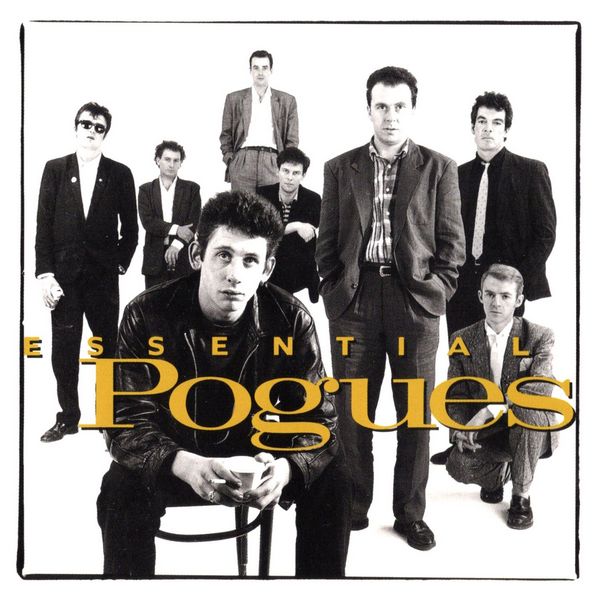


|

 |

 |
Sleeve Notes
Shane MacGowan burst onto London's punk scene in 1977 with his band the Nipple Erectors (later abridged to the Nips). Spanning influences diverse as rockabilly and the Pretty Things, the Nips stayed together until the end of 1980. Soon Shane found himself in a series of new bands with a line-up that eventually settled on Spider (né Peter) Stacy, Jem Finer, James Fearnley, Andrew Ranken and Cait O'Riordan. Originally known as Pogue Mahone — Gaelic for "kiss my ass", the Pogues released their first single in 1984. Mixing traditional Irish and English folk songs with a punk aesthetic, the Pogues evolved into a unique and exciting entity. This collection documents the bands' Island years, which included three albums and one EP, from 1988-1990. Island's first Pogues release, 1988's If I Should Fall from Grace With God is arguably the Pogues' strongest album to that point. Included is the beautifully melancholy "Fairytale of New York," which features Kirsty MacColl, wife of producer Steve Lillywhite and daughter of folk legend Ewan MacColl. The Pogues' next recording included the Motown-influenced "Yeah, Yeah, Yeah, Yeah, Yeah" (the remix of which is available here for the first time domestically on cassette and CD), as well as a raucous cover of the Rolling Stones' "Honky Tonk Woman." Peace And Love found the band tackling even more diverse styles. Their growing ambition is evident on the calypso influenced "Blue Heaven" and the sublime "Lorelei." 1990's Hell's Ditch marked a change in producers, from Steve Lillywhite to former Clash leader Joe Strummer. Strummer had worked with the band before on Alex Cox's film Straight To Hell. This spoof spaghetti western starred Strummer and featured the Pogues, who all contributed to the film's soundtrack. Strummer also played guitar on their '87 U.S. tour. The 14 tracks included on this compilation represent essential listening, not just for Pogues fans, but for music fans. On the surface it might not seem to make a lot of sense to marry the music of the Sex Pistols and the Chieftains, but all the sense you need (and all the nonsense, too) is right here in these songs. And if you scrape the surface, maybe you'll find an essential similarity of attitude in punk and traditional Irish folk music, an attitude that means the same no matter what the language: Pogue Mahone.